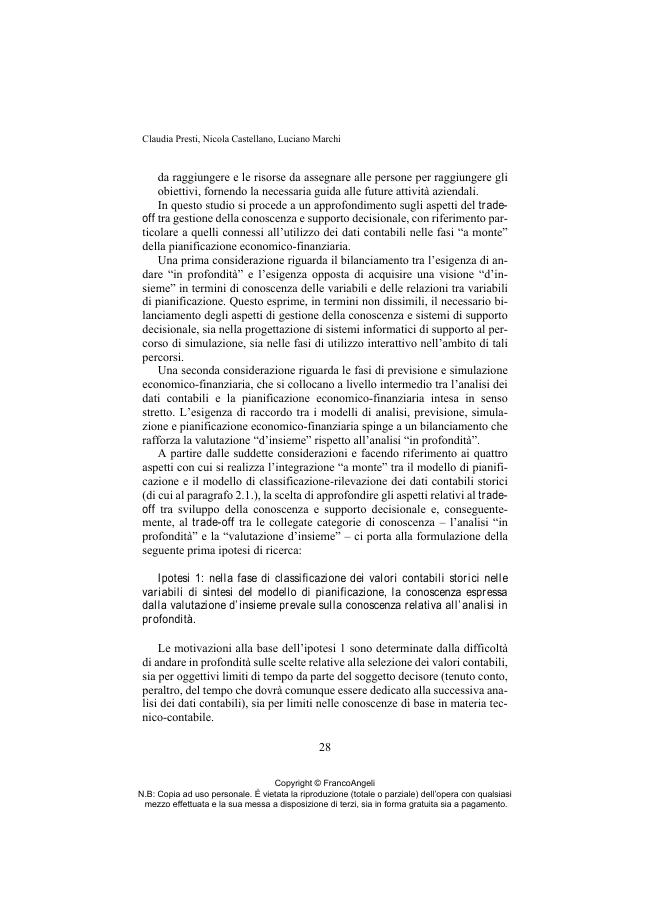L'utilizzo dei dati contabili per la pianificazione economico-finanziaria : sviluppo della conoscenza e supporto decisionale
16-40 p.
The fundamental outputs of the planning process are the objectives and the resources assigned to people to guide future business activities, integrating upstream and downstream the economic and financial values. The aim of this paper is to investigate the upstream integration since it presents various critical elements. These criticalities are related to the differences not only in the classification criteria of historical perspective data but also in the level of the synthesis/analysis of the planning model with regard to the technical accounting model. Specifically, this paper aims to analyze the type of knowledge required and developed during the upstream integration phase. The research is carried out with the use of interactive management software based on the origindestination relationships between the accounting data and the data to be used in the planning model.
The collection of empirical evidence involves an experimental study and a related survey administered to the software users. From the experimental analysis, it emerges that the software, designed in accordance with a process of connection that is not completely automatic, stimulates the subjects involved in the planning path to seek solutions to manage the criticalities related to the phases of management, i.e. attribution, distribution, and analysis. The research of the abovementioned solutions stimulates a process of integration of technical and accounting knowledge and knowledge/decisionmaking skills inherent in the strategic management model. [Publisher's text].
Fait partie de
Management Control : 3, 2021-
Articles du même numéro (disponibles individuellement)
-
Informations
Code DOI : 10.3280/MACO2021-003002
ISSN: 2239-4397
KEYWORDS
- Business planning, Strategic management, Decision Support systems, Knowledge management, Insight, Judgement, Creativity, Experimental study



